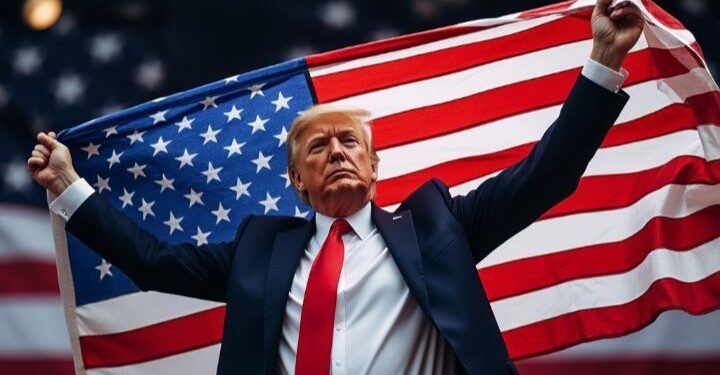U.S. President Donald Trump has announced plans to introduce new 25% tariffs on all steel and aluminum imports, marking a significant escalation in his trade policy agenda.
Speaking to reporters aboard Air Force One en route to the NFL Super Bowl in New Orleans, Trump stated that the new tariffs would be formally unveiled on Monday, with additional reciprocal tariffs set to be announced later in the week.
The proposed tariffs will apply to all countries, including major steel and aluminum exporters to the U.S. such as Canada, Brazil, Mexico, South Korea, and Vietnam. Trump justified the move as part of his broader strategy to impose equal trading terms with foreign partners, saying, “And very simply, if they charge us, we charge them.”
According to government and industry data, Canada is the largest supplier of aluminum to the U.S., accounting for 79% of total imports in the first 11 months of 2024. Canada is also among the largest steel exporters to the U.S. T
The announcement has sparked concern among policymakers, with Canadian Innovation Minister Francois-Philippe Champagne emphasizing the importance of Canadian metals to U.S. industries such as defense, shipbuilding, and automotive manufacturing.
Implications for Trade and Industry
Trump also confirmed that while Japan’s Nippon Steel would be permitted to invest in U.S. Steel, the U.S. government would not allow it to acquire a majority stake.
“Tariffs are going to make [U.S. Steel] very successful again, and I think it has good management,” Trump added.
His first administration had previously imposed similar tariffs in 2018, later granting exemptions to select trading partners such as Canada, Mexico, and Brazil. Former President Joe Biden negotiated duty-free quota arrangements with the UK, EU, and Japan, but Trump did not clarify whether these exemptions would remain in place.
Quebec Premier Francois Legault called for an urgent renegotiation of the U.S.-Canada free trade agreement, citing the heavy reliance of U.S. industry on Quebec’s aluminum exports.
“Quebec exports 2.9 million tons of aluminum to the U.S., fulfilling 60% of their needs. Do they prefer to get supplies from China?” Legault questioned.
Industry and Market Reactions
The American Iron and Steel Institute (AISI) expressed strong support for the tariffs, with its president, Kevin Dempsey, stating, “We look forward to working closely with the President to implement a robust trade agenda that addresses foreign market distortions.”
However, trade experts warn that the tariffs could lead to retaliatory measures from key partners. The European Union, which has previously imposed countermeasures on U.S. whiskey and other goods in response to Trump’s tariffs, could reintroduce similar measures. Chris Swonger, CEO of the Distilled Spirits Council of the U.S., warned that escalating trade tensions could result in the EU reinstating a 50% tariff on American whiskey, potentially devastating the industry.
Broader Trade Policy Agenda
- Trump has long criticized international trade imbalances, particularly targeting the EU’s 10% tariff on auto imports compared to the U.S.’s 2.5% rate.
- He has repeatedly claimed that Europe benefits disproportionately from trade while imposing restrictive measures on U.S. exports.
- With the U.S. trade-weighted average tariff rate currently at 2.2%, significantly lower than countries like India (12%), Brazil (6.7%), and the EU (2.7%), Trump’s latest moves indicate a push toward protectionist policies aimed at reshaping global trade dynamics. Further details on the reciprocal tariff strategy are expected at a press conference later this week.
- As markets brace for the impact, analysts predict increased volatility in the steel and aluminum sectors, with potential repercussions for manufacturing costs and consumer prices in the U.S. and beyond.










